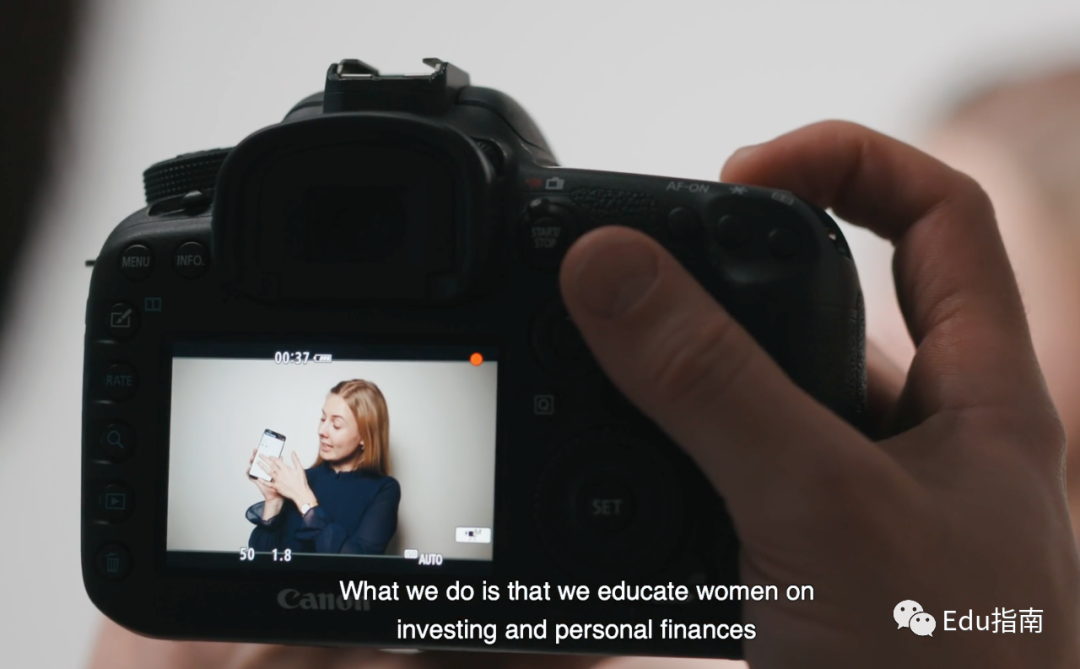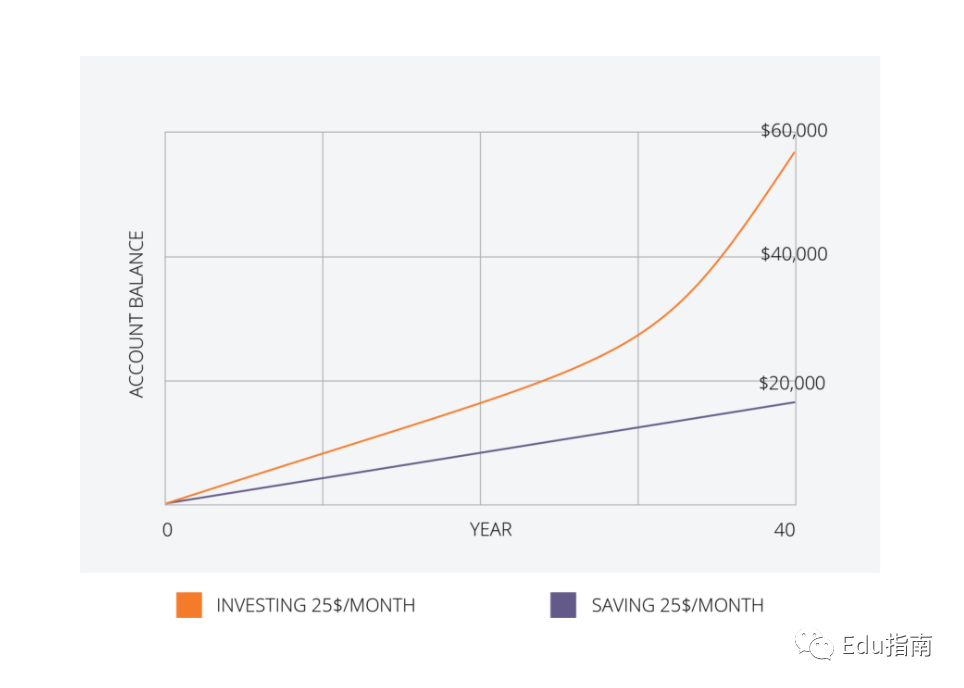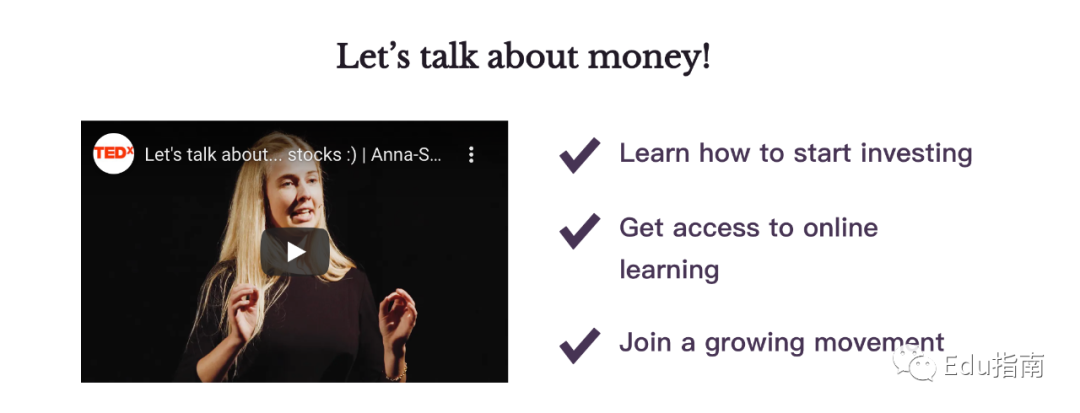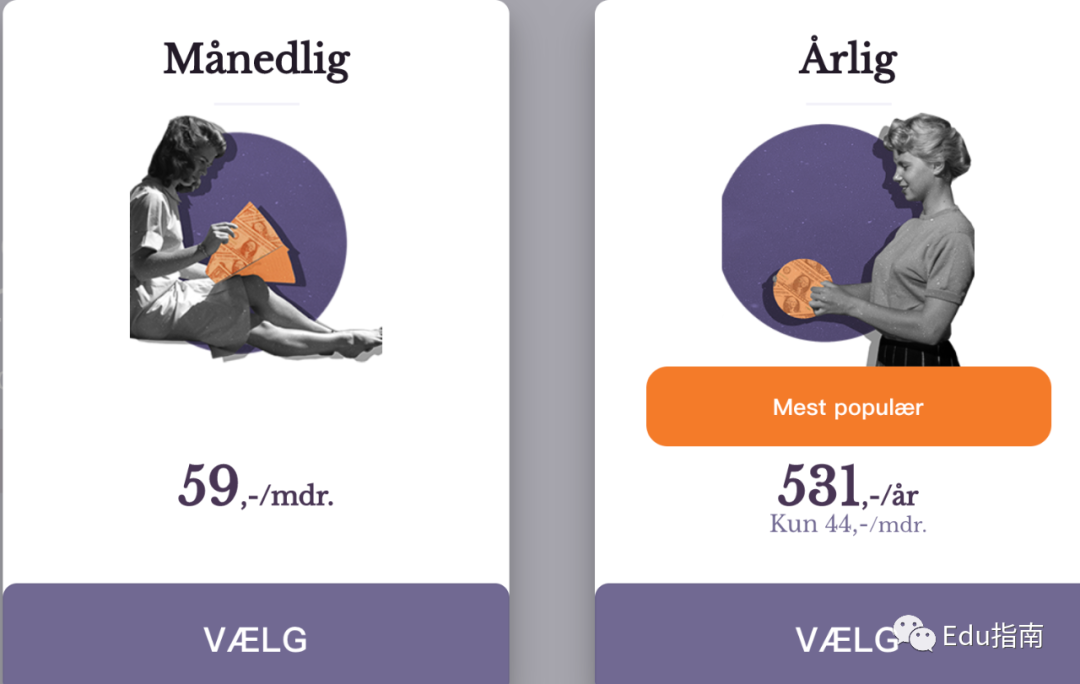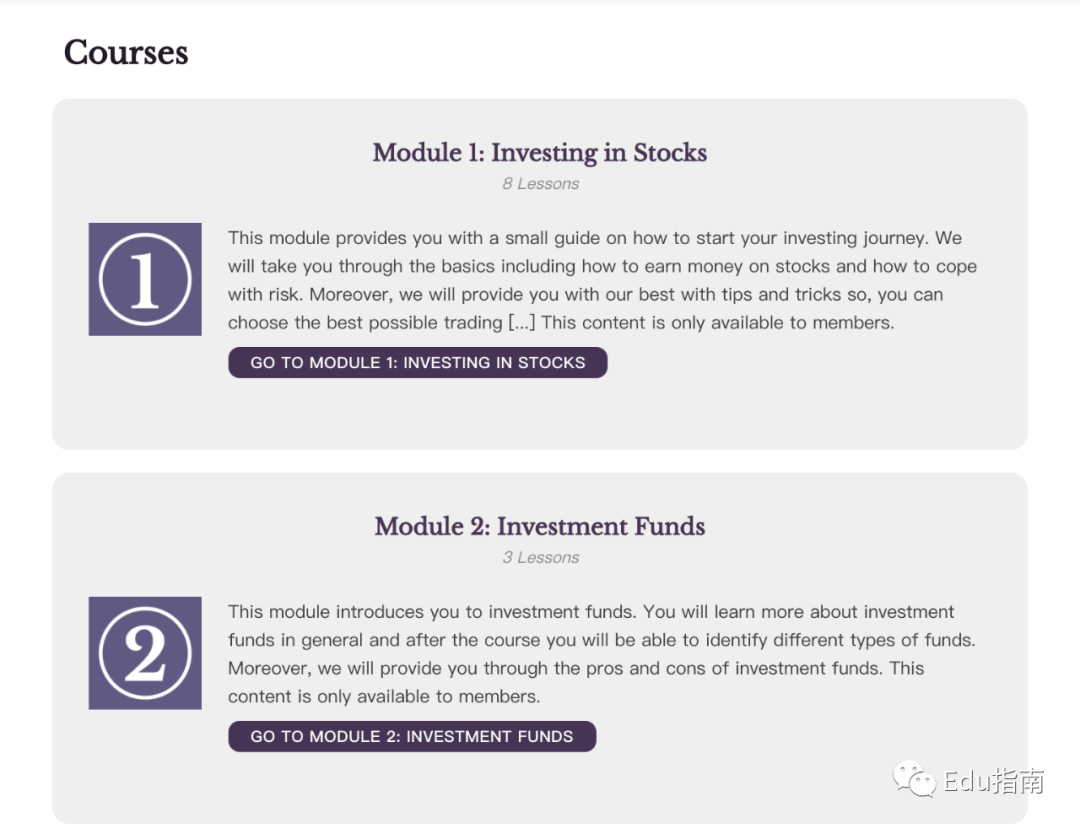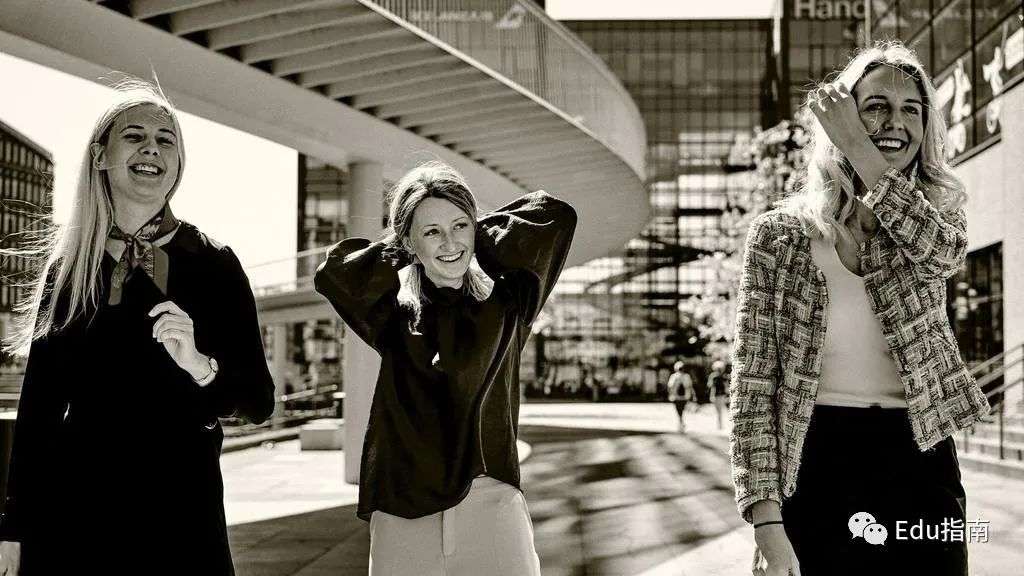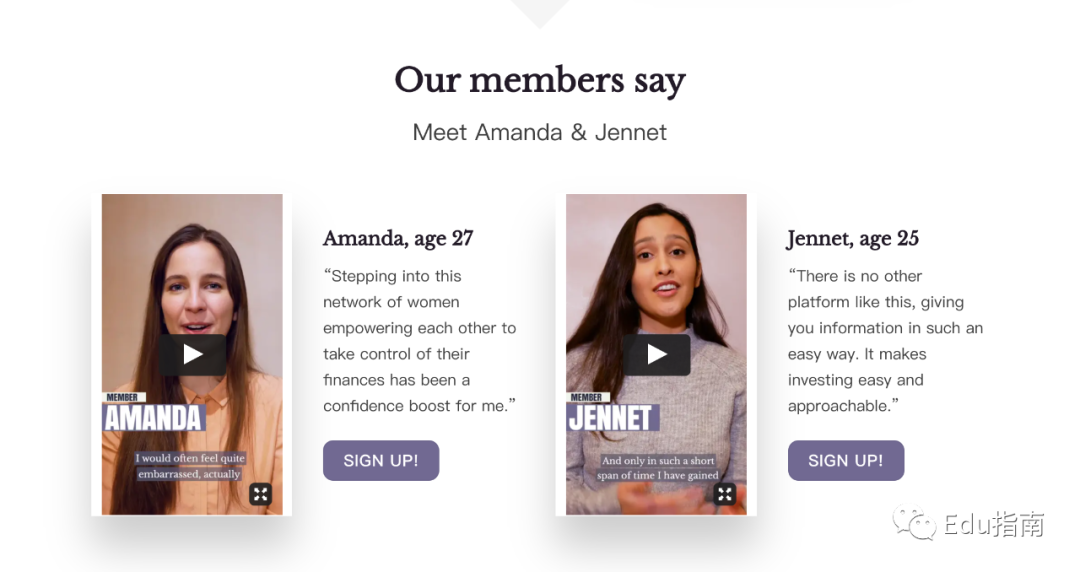“This is not only about money, it is also about the freedom to make your own choice of”
Editor’s note: This article is from the micro-channel public number “Edu Guide” (ID: EduZhiNan), Author: Edu Guide.
Gender education fairness in public schools has promoted women’s ability to independently participate in market work. This is undoubtedly a major advancement in gender fairness. However, after gaining their own savings through work, women’s participation in investment appreciation, from the current point of view, “even in the world, there is still a gender imbalance: women are inferior to men in managing their own money.”
Recently, an edtech company in Northern Europe and Denmark completed a $1.6 million financing. The problem they want to solve is to help women gain investment knowledge and skills and participate in the investment market with greater asset appreciation. Not just traditional bank savings.
Female Invest
This company is Female Invest. “As the largest female financial education institution in Northern Europe, we hope to eliminate financial inequality between genders. To this end, we help women better manage their money and provide women with investment and Personal finance education.”
On the Female Invest platform, the current paid products are mainly membership subscription fees, US$59 DKK (approximately US$9.6). The C-end is for female retail investors and provides additional business-to-business (B2B) products. The annual payment is 531 DKK (approximately US$86.6). Prices for the UK have risen slightly.
Female Invest’s membership subscription mainly provides investment education content for women, in the form of courses (introduction, stocks, fund investment, etc.), webinars, video tutorials, articles and offline activities. Its partners include Nordea (Nordic’s largest financial group, Nordic Bank), Nasdaq and Nordnet.
Female Invest was first launched in 2017 at Copenhagen Business School. Its co-founders include Emma Due Bitz, 25, Camilla Falkenberg, 27, and Anna-Sophie Hartvigsen, 26.
Co-founder Due Bitz became a certified stock trader of Nordea Bank Nordea at the age of 20 and is one of the youngest female traders in the Nordic region.
Co-founders of Female Invest: Anna-Sophie Hartvigsen, Emma Due Bitz and Camilla Falkenberg
The other co-founder Hartvigsen mentioned: “There are huge vacancies in the female-oriented content market.”
At present, 80,000+ women have joined the Female Invest platform, and 40,000+ offline event participants. This is the “beginning” of women’s investment in education.
And what I have to pay attention to is that Female InvesTypical users of t are all young women of the new generation. They “obviously have greater enthusiasm for independent control, investment and financial management”: for example, the official website user representatives are all born in the 90s and 95s.
For the current Chinese market, the generations after 90s, 95s, and even 00s, the awareness and demand for independent earning and investment will also be different from the previous generation of users. Therefore, in this more segmented group of people, we look forward to There are similar service providers in China.
Expanded
After this round of financing, Female Invest will further expand to the UK. The platform went live in the UK in the second half of last year, starting from the office in London.
Female Invest’s recent round of financing was led by Danish State Investment Fund Vækstfonden. Other investors included Shailendra Patel, the co-founder of Danish investment bank Saxo Bank’s Saxo Bank, and investors from Denmark’s Dragons’Den.
Female Invest now has 11 employees, “serving 80,157 members from 56 countries/regions.” In an interview with foreign media, Hartvigsen said that the UK is its “next big market.”
Hartvigsen said: “We want to enter one country at a time and establish local partnerships with banks and non-financial companies,” she cited the examples of Google and BMW. “We are waiting for the epidemic to get better so that we can be sure to start offline activities.” “But we have already started working with some British banks.”
Currently, the technical team of this startup is building a “2.0 platform”, and Hartvigsen estimates that the platform will be ready in five to seven weeks. The idea is to include more community components in the platform so that members can be better linked together.
Overcome the initial insecurity initial insecurity
In Female Invest’s opinion, although men are often the “face” when it comes to investing, many studies have proved that women perform better than men in the stock market.
The investment platform Hargreaves Lansdown found that in a similar three-year period, women’s return on investment was 0.81% higher than men’s.
“This is the same trend worldwide,” Hartvigsen said. “Women always get better returns. We have feminine qualities. On average, they take less risk and have a longer period of time to keep investing longer.”
Despite this prudent method of making money, it is usually the reason why women do not participate in investment.
“This sense of insecurity made them excellent investors from the beginning,” Hartvigsen explained.
The recent period is an important period for women in the stock market. Bumble, a dating app founded and led by women, conducted an initial public offering (IPO). After listing, the market value soared to more than 13 billion U.S. dollars, and female CEO Whitney Wolfe Herd became a billionaire.
“When you see a woman like you in the market, it makes a big difference,” Hartvigsen said.
Finally, Female invest, an edtech company, will continue to focus on how women can help become long-term investors through stocks, funds, exchange traded funds (ETF) and real estate.
Correct language
When the co-founders of Female Invest started, their goal was-still-to change the language surrounding investment to make it more women-friendly.
The three female co-founders of this startup all admitted that even though they are in the industry, they still find it difficult to invest. The co-founder believes: “This is a global problem, and women are not as good as men in managing their own money.”
Female Invest avoids unnecessary and overly complex terminology. “We want to change people’s perception that finance is boring and boring. This does not mean that our content is “ordinarily low threshold”, it’s just different.”
For example, savings accounts are often called “F**k You” accounts because education centers on independence. This kind of framework makes sense when you analyze the frequency of financial interdependence in relationships.
As early as 2015, the American Sociological Association found that financially dependent couples are significantly more likely to have problems. But the consequence is that it is women who “suffer”.
A 2017 study by the Chartered Insurance Institute (CII) found that the average divorced woman in the UK has less than one third of the average divorced male’s pension wealth. Divorced women expect to rely on the state pension 10% higher than men.
